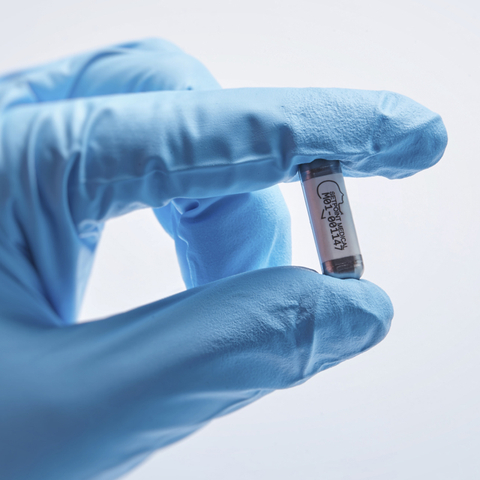VALENCIA, Calif.– SetPoint Medical, a clinical-stage healthcare company dedicated to people living with chronic autoimmune diseases, today announced positive topline results from the landmark RESET-RA clinical study. RESET-RA is evaluating the SetPoint System as a potential first-of-its-kind neuroimmune modulation treatment for adults living with moderate-to-severe rheumatoid arthritis (RA) who are incomplete responders or are intolerant to biologic or targeted synthetic disease-modifying anti-rheumatic drugs (DMARDs).
The study met its primary endpoint with a statistically significant greater proportion of study participants achieving an ACR20 response in the treatment group compared with the control group at 12 weeks (p=0.0209). An ACR20 response is a composite measure of the effectiveness for RA treatments set forth by the American College of Rheumatology. Additionally, no safety concerns have been observed during the first 12 weeks and long-term follow-up, as available. Adverse event rates were low for both the implant procedure and stimulation therapy, and overall treatment was effective and well-tolerated.
“Despite multiple treatment options, including biologic therapies and oral Janus kinase (JAK) inhibitors, there continue to be challenges and unmet medical needs in managing rheumatoid arthritis,” said David Chernoff, M.D., Chief Medical Officer of SetPoint Medical. “A significant proportion of patients either do not adequately respond to or are intolerant to currently approved treatment options. Approved therapies can also have serious immunosuppressive risks leading to safety concerns, poor patient satisfaction, and low treatment adherence.”
More than 1.5 million Americans live with RA, a disease in which the body’s immune system attacks its own tissue, often causing pain, bone erosion, joint deformity, diminished function, and long-term disability. There is no cure for RA, and current therapies are associated with poor patient satisfaction and low persistence rates. The majority of patients discontinue their prescribed medication within two years, primarily due to lack or loss of efficacy, and intolerance to side effects.1,2
The SetPoint System includes an implantable, rechargeable neurostimulation device that electrically stimulates the vagus nerve once daily to activate innate anti-inflammatory and immune-restorative pathways, providing the potential to treat autoimmune conditions like RA without the immunosuppressive risks associated with pharmacological therapies. After placement during an outpatient procedure, the SetPoint System is programmed to automatically deliver therapy on a preset schedule to improve compliance and persistence with therapy.
“We are thrilled with the results from the RESET-RA study as they highlight the potential of the SetPoint System for providing rheumatologists and their patients with a safe and effective treatment alternative to current rheumatoid arthritis therapies,” said Murthy V. Simhambhatla, Ph.D., Chief Executive Officer of SetPoint Medical. “As next steps, we look forward to submitting the data for presentation at upcoming rheumatology and neurosurgical medical meetings, and completing our premarket approval submission to the FDA.”
RESET-RA, a two-staged, multicenter, randomized, sham-controlled, double-blind pivotal trial, enrolled a total of 242 patients across 41 sites in the U.S. Following the completion of the primary endpoint at 12 weeks, the study continues to evaluate the long-term safety and effectiveness of the device in an open-label extension study.
The SetPoint System has Breakthrough Device Designation from the U.S. Food and Drug Administration (FDA) for patients with moderate-to-severe RA with an incomplete response or intolerance to one or more biological DMARDs or targeted synthetic DMARDs, such as JAK inhibitors.
SetPoint’s neuroimmune modulation platform was also granted Breakthrough Device Designation and accepted into the Total Product Life Cycle (TPLC) Advisory Program (TAP) Pilot in March 2024 for the treatment of relapsing-remitting multiple sclerosis (RRMS) based on evidence demonstrating that the device has the potential to reduce demyelination and promote remyelination in people living with multiple sclerosis.


